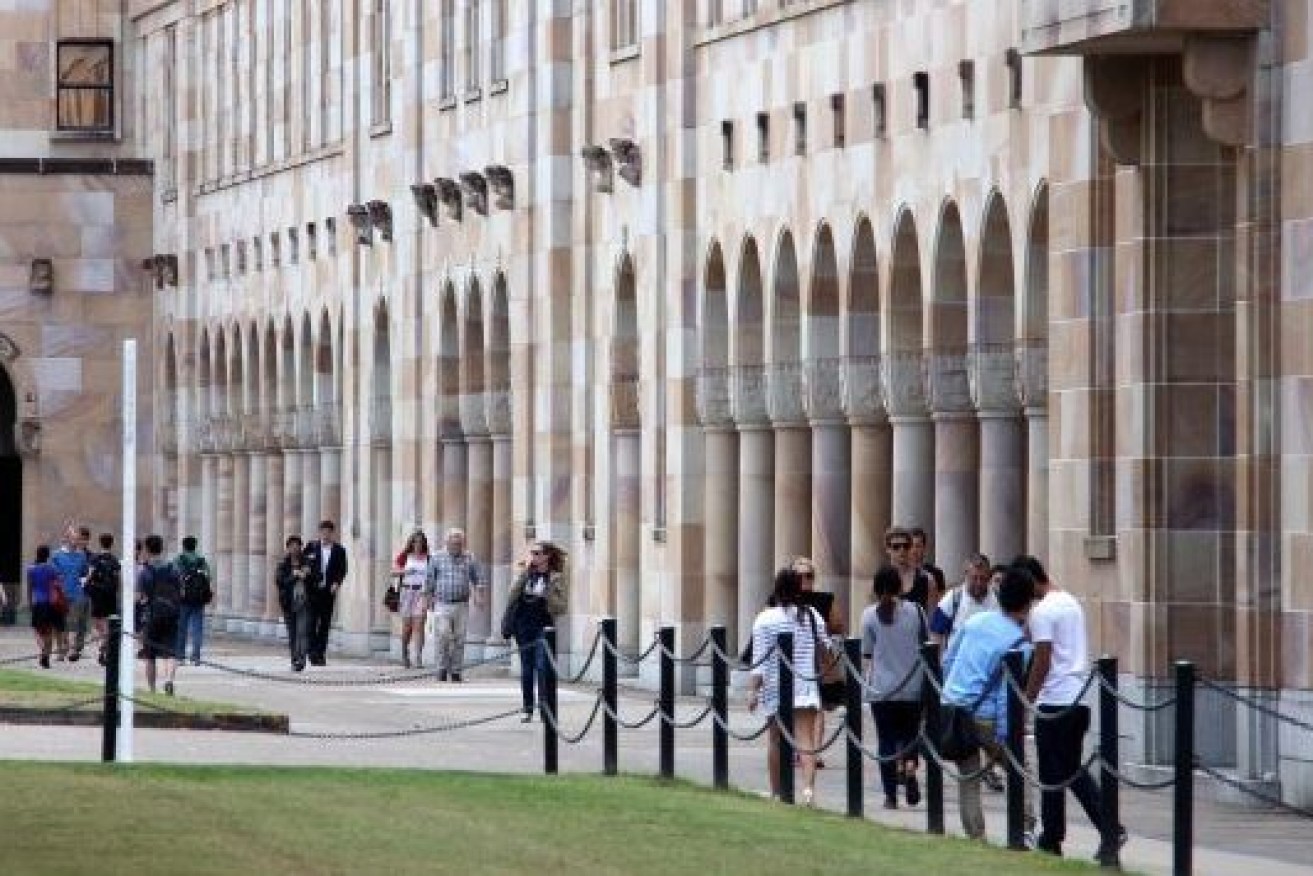When it all comes down to it, the future of our universities rightly lies with teenagers
Universities must pay more attention to making their students’ lives better if the ambitious newly released “accord” is to achieve its ambition of a better-educated, more productive nation.


Queensland has revealed a plan to return international students to the state's universities.. Photo: ABC
And students’ lives must get better. While university enrolment numbers have grown dramatically over the past two decades, the growth has slowed.
The “accord” which sets out a longterm direction for Australia’s higher education sector is long on talking about the importance of the student experience but short on walking through how to make it better.
And it must get better. While university student numbers have grown dramatically over the past two decades, the growth has slowed.
The ability of universities to reverse this has declined along with the fall in overseas student numbers, the cash cow that has supported the creation of palaces of learning that sit idle for almost half the year (and under-occupied for the other half).
The accord, released Sunday by the aspiring reformer Jason Clare, deals methodically with higher education: its social and economic value to the nation; the need for further investment; its connection with the other levels of education and its links with business.
The sector sits up with iron ore, coal, gas and tourism as a top export earner and, run well, it creates the intellect and technical capacity to create the industries that will sustain us through the century. It’s an important and high-employing industry for Brisbane.
But at the heart of this are students, principally the teenagers who we are banking our future on.
Data in the accord document shows their disappointment. Five of the six top Australian universities have seen their ranking for teaching decline since 2015. Blame Covid but there’s also the issue of how teaching performance is measured. It’s inconsistent and inconclusive, traits no good university would apply to measuring its students’ performance.
The truth is that students’ university experience is not as good as that enjoyed by their baby boomers and GenX parents. The growth of universities has taken away the intimacy of learning; the Covid-inspired race to deliver lectures remotely on-screen has taken away the intimacy of mixing on-campus with likeminded learners.
Many of us have stories of meeting longterm colleagues or future life partners in tutorials and lectures. The likelihood of that has disappeared but the digital replacement is largely a flat, early-century experience, too many analogue monologues rarely matching the dynamism of information a teenager can view or create on Tik-Tok.
The “accord” doesn’t deal with any of this. It does deal with issues that will matter more in the lives of students who stay on for the journey. It discusses creation of “modular, stackable microcredentials” to help create skills Australia needs and to ensure our students are filling them.
Like a lot of higher-ed speak, this needs some translation. This is another way of saying universities need to offer more short courses that students themselves can put together to meet their professional needs. Good idea. But hardly new. This was on the agenda when I flipped out of journalism and went to work in higher education a decade ago and has never really advanced at scale.
Across the board, universities have not adapted as quickly as they should to the changing forces that will shape their students’ world. Generally, they do not do what they teach – and this is underlying, if unspoken, theme of the accord document.
Jason Clare should take some pride in the breadth of it but he also needs to put on his steel-capped boots to make sure universities reform for the future if they are to have any hope of getting the extra funding that would come with adoption of the full package.
This will happen best if they start with the students. The low-hanging fruit is to clean up the administrative obstacles that confront them.
All of us with teenage children either have personal experience or tales from the coffee shop of the horrors of navigating enrolment, course changes or just coping with the coldness of university bureaucracies. This is a good lifeskill for our children – but does it have to be six-times as hard as, say, dealing with a mobile phone provider.
It’s just a matter of priorities. I dropped into a uni campus this week, largely inaccessible by public transport. I parked in the students’ carpark – unsealed, poorly lit and at the bottom of a hill a few hundred metres from the main entry. And walked past the underused, sealed staff carpark at the top of the hill to get to where I wanted. Priorities. Students Last.












